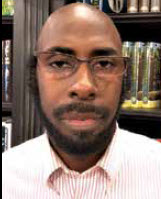There’s a well-known Kenyan proverb that says, He who has never traveled thinks that his mother is the only good cook in the world. At first glance, it may seem like a reflection on food or cultural pride, but beneath its surface lies a profound leadership principle. The proverb warns us of the dangers of limited exposure, of mistaking familiarity for excellence, and of allowing our narrow surroundings to shape an unchallenged worldview. In the same way that a person who never leaves home may assume their mother’s cooking is the standard by which all others should be judged, a leader who never ventures beyond their comfort zone may believe their way is the only way.
Leadership as a lifestyle means constantly seeking growth—not just in knowledge, but in perspective. Just as travel exposes the palate to new flavors, new methods, and new ways of preparing the same ingredients, leadership is enriched through exposure to diverse voices, traditions, and problem-solving approaches. True leaders are those who are humble enough to admit that their experience is not the sum total of wisdom. They understand that what worked in one context might not be appropriate in another, and they value learning from people who look, live, and lead differently.
This proverb also reminds us that proximity breeds limitation when not paired with curiosity. A leader who never travels metaphorically—who never listens across difference, never asks new questions, never leaves their familiar echo chambers—runs the risk of leading in isolation. They may confuse comfort with correctness, tradition with truth, and local patterns with universal principles. Leadership that does not move, does not grow. And leadership that does not grow, cannot serve a world in constant motion.
So what does it mean to live leadership as a lifestyle? It means embodying curiosity, cultural humility, and the courage to journey—whether that journey is geographic, intellectual, or spiritual. It means tasting other “meals” not to compare or compete, but to expand one’s appreciation for the richness of humanity. Great leaders know that their role is not to be the only cook in the kitchen, but to cultivate a table where many bring their gifts. And in that shared feast, we all become better—wiser, fuller, and more fit to lead.
By: Eric Betts
Assistant Director, Curtis Coleman Center for Religion Leadership and Culture at Athens State University









